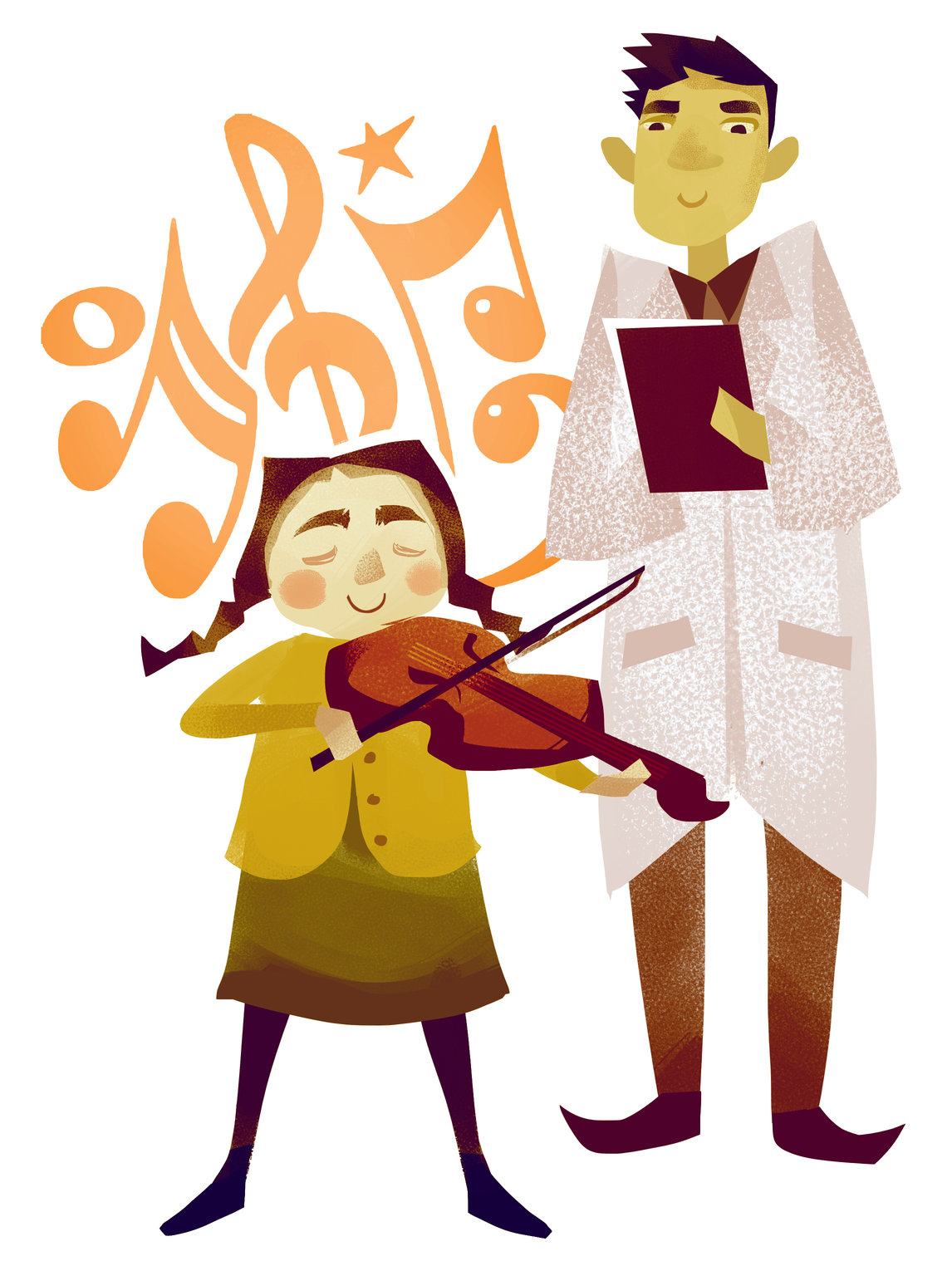Since October 2016, the Family Medicine Graduate Student Society (FMGSS) of McGill has partnered with community organization Share the Warmth to conduct research on a volunteer basis for the foundation’s music program. A research team made up of graduate students from the McGill Department of Family Medicine has been working to demonstrate the benefits of music. The team has looked at the effect that a musical education can have on the cognitive skills of children by using interactive tools, such as apps and games, to measure the participants’ memory, learning, reasoning, and problem solving skills.
Founded in 1989, Share the Warmth is a charity based in Montreal that provides music lessons for disadvantaged youth, in addition to tutoring and food banks. According to Share the Warmth’s Music Coordinator Nadège Wary, the music course is closely inspired by El Sistema–a program created 40 years ago in Venezuela that aspired to use music to prevent children from getting involved with drugs and street gangs. Share the Warmth aims to help young students remain academically successful and counteract the risks that can come with low socio-economic status by offering after-school music lessons.
“We have children with a lot of family difficulties or social difficulties, coming from disadvantaged [households],” Wary said. “Through music, we want to give the children who are in the program skills for living in a community, and for working together.”
The Share the Warmth El Sistema music course is offered to children in Pointe-Saint-Charles, which is among the most disadvantaged areas in Montreal and has economically been identified as one of Canada’s poorest neighbourhoods. According to Pathways to Education, the area’s high school dropout rate is approximately 41 per cent—more than twice as high as the dropout rate in Quebec.
According to Nickoo Merati, one of the Family Medicine graduate students involved in this project, a majority of Share the Warmth funding comes from donations. The organization is seeking a way to assure donors of the validity and impact of their music course.
“Providing an intensive music program to children that are not paying for it is incredibly costly to their donors,” Merati said. “So, having that concrete evidence will hopefully be able to convince the donors of their continued support.”
Cristina Longo, FMGSS president, said that the society has spent the last year working to establish a research capacity within the Share the Warmth organization that will provide measurable, scientific evidence of the positive influence of their El Sistema program.
To accomplish this, the graduate students working with Share the Warmth are using interactive games and questionnaires to measure integral factors, such as the cognitive ability and the level of happiness of the music program participants.
Longo believes that the El Sistema program at Share the Warmth is a project worth volunteering for, especially since it involves helping disadvantaged children to reach their full potential. In 2012, a study conducted by UCLA Graduate School of Education & Information Studies Professor James S. Catterall showed that an education in the arts lessened the achievement gap between children of low and high socioeconomic status.
“Intervening in these types of populations early on, even if it’s an educational intervention like music, could actually help them become more successful later on in life, and be less likely to [be affected by] low socioeconomic status,” Longo said.
Overseeing this initiative is Dr. Gillian Bartlett, the Research and Graduate Program Director for the Department of Family Medicine at McGill. Dr. Bartlett said that she would like to see this unique collaboration expand to reach more students in the future.
“I hope [FMGSS] will continue to form partnerships with charities and organizations where the mandate is about children and education, or the education of more deprived populations or areas in the city that typically would not be able to have this type of support available to them,” Dr. Bartlett said.








